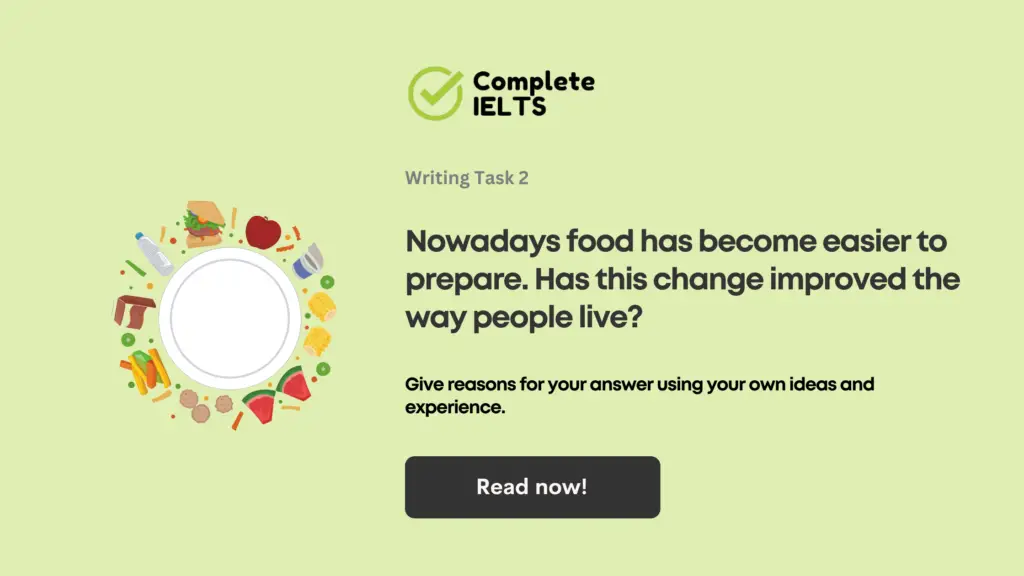
The Impact of Modern Convenience on Food Preparation: An Improved Lifestyle or Cause for Concern?
Nowadays food has become easier to prepare. Has this change improved the way people live?
Give reasons for your answer using your own ideas and experience.
In recent years, advancements in technology and changes in lifestyle have made food preparation easier than ever before. While this development offers numerous advantages, it also raises concerns about potential negative repercussions. This essay will explore the impact of modern convenience on food preparation and its overall implications.
One advantage is that the ease of food preparation saves time for individuals leading fast-paced lives. The availability of pre-packaged and ready-made meals allows people to quickly put together a meal without spending excessive time and effort. This convenience can be particularly beneficial for working professionals and busy parents who struggle to juggle various responsibilities. For instance, a working mother who is pressed for time can rely on frozen meals to provide a balanced dinner for her family in just a matter of minutes.
Despite the undeniable convenience, however, there are concerns about the long-term implications of this trend. The abundance of processed and convenience foods often leads to unhealthy dietary choices, resulting in an increase in chronic health conditions such as obesity and heart disease. Furthermore, the lack of engagement in the cooking process itself may lead to a loss of culinary skills and cultural traditions. Therefore, while modern convenience offers immediate benefits, it is crucial to strike a balance between convenience and the need for nutritious and culturally rich meals.
In conclusion, the increasing ease with which food can be prepared nowadays brings both advantages and disadvantages. While it undoubtedly saves time and effort, it also poses risks to our health and cultural heritage. To strike a balance, individuals must be conscientious about making healthy food choices and preserving the art of cooking. Governments and educational institutions can play a pivotal role by promoting nutrition education and encouraging the revival of traditional cooking practices.
Essay Word count: 294 words 1,975 characters
Vocabulary List:
Advancements (n.) - Developments or improvements.
Example: Technological advancements have revolutionized the way we communicate.
Repercussions (n.) – Unintended consequences or results.
Example: The reckless decision had serious repercussions on the company’s finances.
Juggle (v.) – To manage or handle several things at the same time.
Example: She successfully juggles her job, family, and volunteer work.
Abundance (n.) – A large quantity or amount of something.
Example: The garden was filled with an abundance of colorful flowers.
Culinary (adj.) – Relating to cooking or the kitchen.
Example: The culinary school provided students with practical skills for working in professional kitchens.
Pivotal (adj.) – Of crucial or essential importance.
Example: The CEO played a pivotal role in steering the company toward success.
Conscientious (adj.) – Taking care to do things correctly and thoroughly.
Example: The conscientious student always submits assignments on time and of the highest quality.
